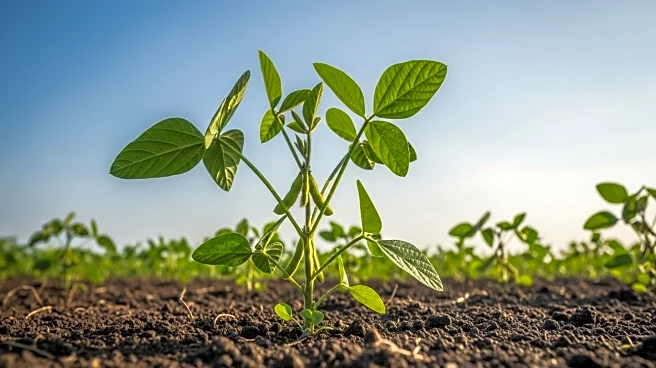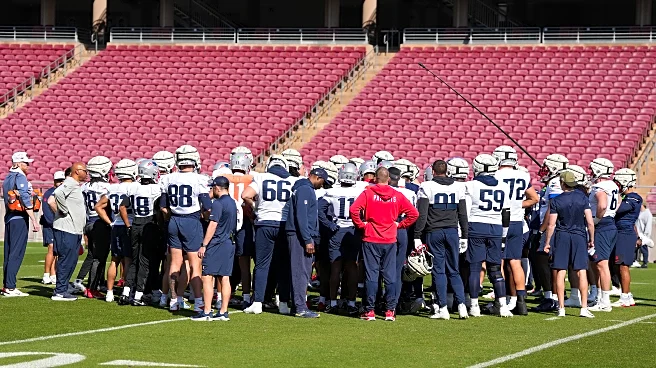What is the story about?
What's Happening?
During the RTRS International Conference 2025 in São Paulo, Brazil's potential to lead the global transition toward low-carbon agriculture was highlighted. The focus was on low-emission soy production and regenerative agricultural practices. CJ Selecta, a key player in the soy chain, is investing in precise emissions measurement and engaging with certified producers to change the narrative around Brazilian soy, which is often linked to deforestation. The company has demonstrated that it is possible to drastically reduce emissions related to land use change by ensuring no deforestation in supplying areas. This approach has been well received by customers and is part of a broader agenda for climate resilience and access to higher value-added markets.
Why It's Important?
Brazil's initiative to focus on low-emission soy production is significant as it positions the country as a leader in regenerative agriculture, potentially expanding its presence in markets demanding sustainability and traceability. This shift could enhance Brazil's agribusiness reputation, not only for its scale but also for its capacity to regenerate and prove positive environmental impacts. The accurate measurement of the carbon footprint of soy products is crucial for meeting commercial demands and advancing climate resilience. This initiative could open strategic opportunities for Brazil to reposition itself internationally as a reference in food production decarbonization.
What's Next?
CJ Selecta plans to make its emissions data available in the Global Feed LCA Institute database, reinforcing its commitment to transparency and sustainability. The company advocates for regulatory advances, such as a structured carbon market in Brazil, with green premiums and financial incentives. Additionally, CJ Selecta and Unilever have launched the Renova Terra program, investing EUR 5.5 million to implement regenerative agriculture practices on up to 45,000 hectares of soy cultivation by 2030. This collaboration highlights the importance of partnerships across the value chain and the potential for similar projects with the animal feed industry.
Beyond the Headlines
The initiative underscores the need for international methodologies to accurately reflect Brazil's tropical agricultural practices, which contribute to reducing the environmental footprint. The program also emphasizes the importance of collaboration among partners across the value chain to strengthen sustainability efforts. By adopting digital solutions for data collection and advocating for a transparent carbon market, Brazil could further enhance its role in global regenerative agriculture.
















